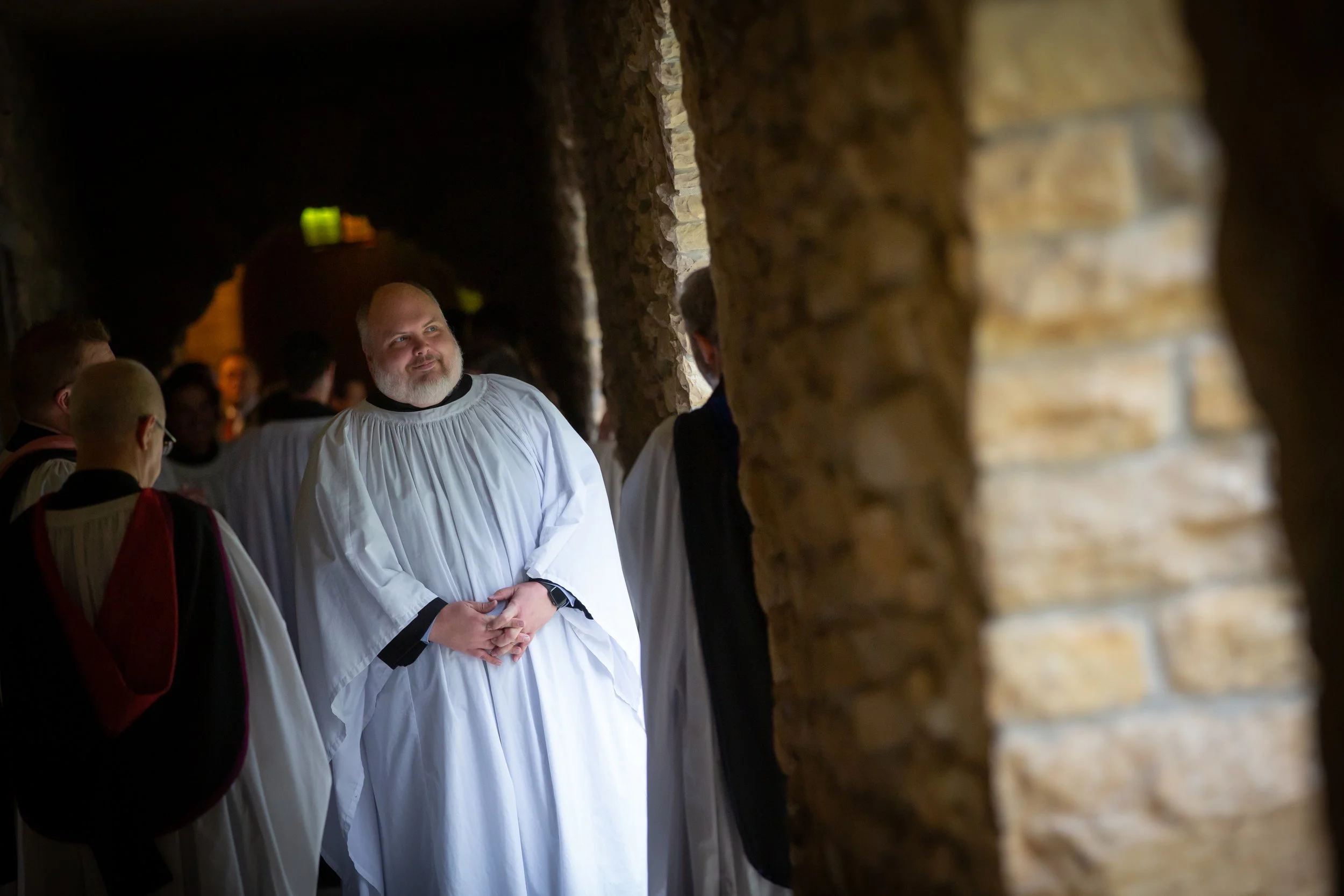A Sermon for All Saints’
Student Billy Wint preached the following sermon in St. Mary’s Chapel for All Saints’ Day. The referenced readings include Revelation 7:9-17 and Matthew 5:1-12.
Our reading from Revelation today begins by answering the question posed at the end of chapter six, when “The kings of the earth and the great ones and the generals and the rich and the powerful, and everyone, slave and free hid themselves in the caves and among the rocks of the mountains, calling to the mountains and rocks, ‘Fall on us and hide us from the face of him who is seated on the throne, and from the wrath of the Lamb, for the great day of their wrath has come, and who can stand?’”
We see in our text a great multitude that no one could number, from every nation, from all tribes and peoples and languages, standing before the throne and before the lamb. Who can stand? These people can stand. They are clothed in white robes, with palm branches in their hand. One cannot help but think of the triumphal entry of our Lord, people carrying palms, placing them and even their own garments on the path before Jesus as he rode into Jerusalem, but this Palm Sunday celebration is different.
The cry of “Hosanna!” (from the Hebrew, meaning “Save now!”) has been replaced with the cry, “Salvation belongs to our God who sits on the throne, and to the Lamb!” After the cry comes the response of the angels, falling down and saying, “Amen! Blessing and glory and wisdom and thanksgiving and honor and power and might be to our God forever and ever! Amen!”—seven acts of worship to show the magnitude of the worship owed to God for his saving works.
Then one of the elders asks John who these people are and where they have come from, and John replies, “Sir, you know.” You can almost feel John’s wonderment. The stories of what happened to John leading to his exile on Patmos are sobering. They tried to kill him, by some accounts more than once, and he just wouldn’t die. So, he finds himself on Patmos and is met there by his Lord. He sees Jesus standing in the midst of the churches. He sees the throne and Jesus as the Lamb who is worthy. And now he has seen the triumphant multitudes worshipping their savior. It would not be too presumptuous to assume that John is not so much concerned with who they are, or where they come from, but is overwhelmed by the desire to join them. The elder replies, “These are the ones coming out of the great tribulation. They have washed their robes and made them white in the blood of the Lamb.”
Jesus’s being handed over to the Roman authorities caused all those people who once lined the road into Jerusalem crying “Hosanna” to shout “Crucify Him!” His arrest and condemnation caused almost all who loved him to abandon him; Peter even denied him. But the crucifixion, the shedding of his blood at the hands of the Roman authorities, has become the reason a multitude without number, emerging out of the persecution and being prosecuted by Rome, could stand in the presence of their God. This is the ultimate blessing for those from the Sermon on the Mount who are considered blessed for being persecuted. Those who have washed their robes in the blood of Christ are able to stand before the throne. Service in the heavenly temple is not limited to a family or tribe but is open to everyone so washed. God dwells in their midst. They do not hunger or thirst. The sun does not strike them, nor do they feel any scorching heat. The Lamb is their shepherd, and he will guide them to springs of living water. And God will wipe away every tear from their eye. Ultimately, he will wipe away every cause of their tears.
This is God drawing together all the promises of Scripture; everything culminates here before his throne, in His temple being served by those whose garments have been washed in the blood of the Lamb—truly an eternal weight of glory beyond all comparison. “Give us grace so to follow thy blessed saints in all virtuous and godly living, that we may come to those ineffable joys which thou hast prepared for those who unfeignedly love thee” (from the “Collect for All Saints’ Day,” 1979 BCP traditional language).
After a 25 year career in healthcare, Billy and his wife, Joy, moved from Birmingham, Alabama, to follow his lifelong dream to attend seminary and a not-so-lifelong dream (after converting to Anglicanism at age 22) to become a priest. He is in his middler year and is from the Diocese of Quincy.

